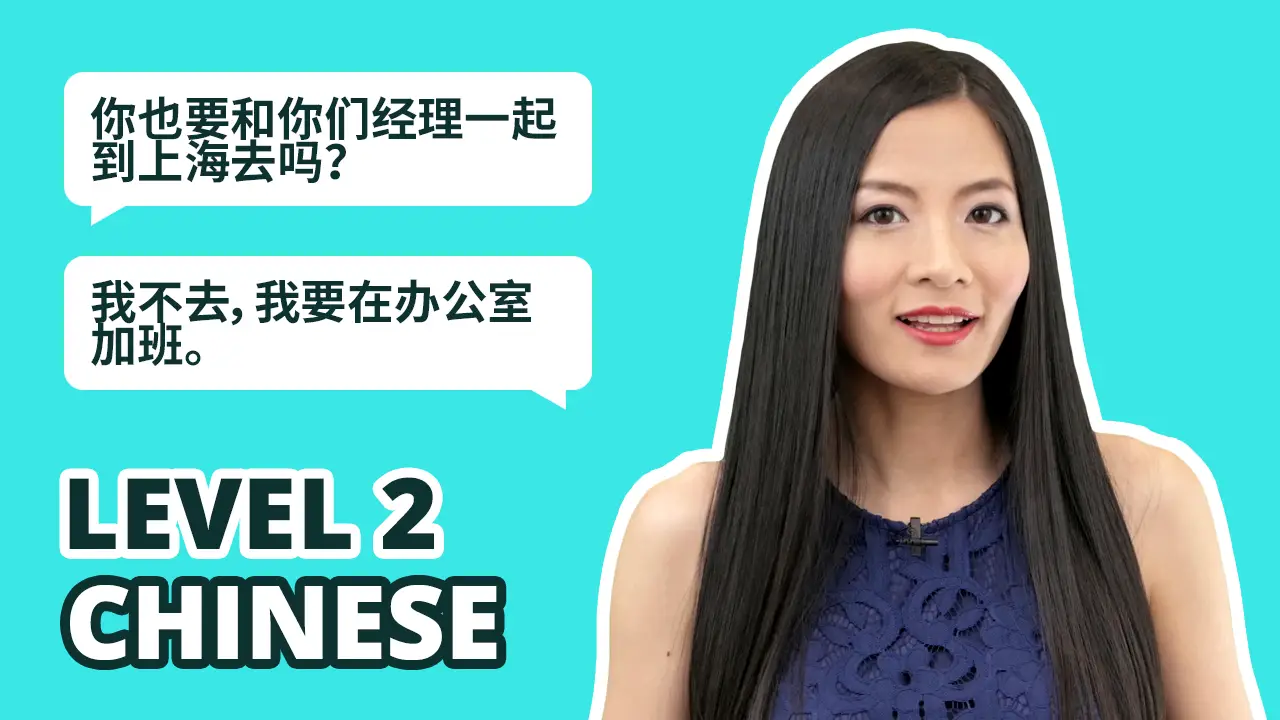Level 2 Lesson 26.1 – Again in Chinese
How to Say Again in Chinese with 再 and 又 | Retroflex Final
In today's video lesson we’ll learn how to say again in Chinese with 再 and 又. We'll also learn about Retroflex Final 儿化. We'll also learn the phrase "we'll see" in Chinese
- Again in Chinese with 再 and 又
- Retroflex Final 儿化
- "We'll see" in Chinese: 再说吧
VOCABULARY
EXPRESSIONS
GRAMMAR
Grammar 1: Retroflex Final · HSK 2
We’ve learned about Retroflex Final in our Pinyin Drill Course. The Retroflex Final itself is pronounced "er", as in 第二(dì'èr) and 儿子(érzi). Basically, we raise our tongue up a little bit to make this sound.
The “er” sound can be added at the end of a syllable, as part of the syllable too. Most of the time it doesn’t change the meaning of the word, just making it more colloquial or more of spoken language. And we use the Chinese character 儿 to mark the Retroflex Final. A lot of syllables with Retroflex Final are nouns,
For example,
| Original Syllable | Syllable with Retroflex Final |
| xiǎohái 小孩 kid;child |
xiǎoháir 小孩儿 kid;child |
| huà 画 painting; drawing |
huàr 画儿 painting; drawing |
| shì 事 thing; affair; incident |
shìr 事儿 thing; affair; incident |
| zhè 这 this |
zhèr 这儿 here |
| wán 玩 to play; to have fun |
wánr 玩儿 to play; to have fun |
| hǎowán 好玩 fun (to play) |
hǎowánr 好玩儿 fun (to play) |
| yíxià 一下 (for) a little bit |
yíxiàr 一下 (for) a little bit |
Be careful that the Pinyin spelling rule of these words is to add an “r” at the end, as part of the syllable. But to type the characters out, the Pinyin typing rule is that we have to type out the original syllable of the word, and then type out “e-r” to add the “儿” character after it.
Grammar 2: Again in Chinese with 再 and 又 · HSK 2
再 and 又 are both Adverbs. They both suggest “again; moreover; once more” – for an action or a state to be repeated.
However, 再 is usually for an action or a state yet to happen. For example,
- wǒ xiǎng zài wánr yíxià diànnǎo
我想再玩儿一下电脑。
I want to again play (the) computer (for) a little bit.
I want to play (the) computer (for) a little bit more. - nǐ néng zài mǎi shí ge jīdàn ma
你能再买十个鸡蛋吗?
Can you again buy 10 eggs?
Can you buy 10 more eggs?
又 is usually for an action or a state that already happened. For example,
- wǒ yòu hē le xiē niúnǎi
我又喝了些牛奶。
I again drank some milk. - wǒ yòu kànjiàn nà ge nǚháir le
我又看见那个女孩儿了。
I again saw that girl.
Since 又 is for action or state that already happened, it usually is not used in negative sentences. And 再 can be used with 不, meaning not again, not anymore, or with 别, meaning, don’t again, don’t anymore, as a request or requirement. It can also be used with 没(有), meaning did or have not again; did or have not anymore. But in the sentence, 不, and 别 usually go before 再, but 没(有) can go either before or after 再. So we can follow the following structures:
- ……不……再……
- ……别……再……
- ……没(有)……再……
- ……再……没(有)……
For example,
- wǒ bù xiǎng zài tīng nǐ shuō zhè xiē le
我不想再听你说这些了。
I (do) not want to listen to you say(/talk abou) these (things). - nǐ bié zài ràng māma bù gāoxìng le
你别再让妈妈不高兴了。
You don't make mom unhappy again.
- tā zǒu le yǐhòu, méi(yǒu) zài huílai guo
她走了以后,没(有)再回来过。
After she left, (she has) not come back again. - èr líng yī líng nián yǐhòu, wǒ zài méi(yǒu) qù guo nà ge dìfang le
2010年以后,我再没(有)去过那个地方了。
After year 2010, I (have) not gone to that place (again/)anymore.
